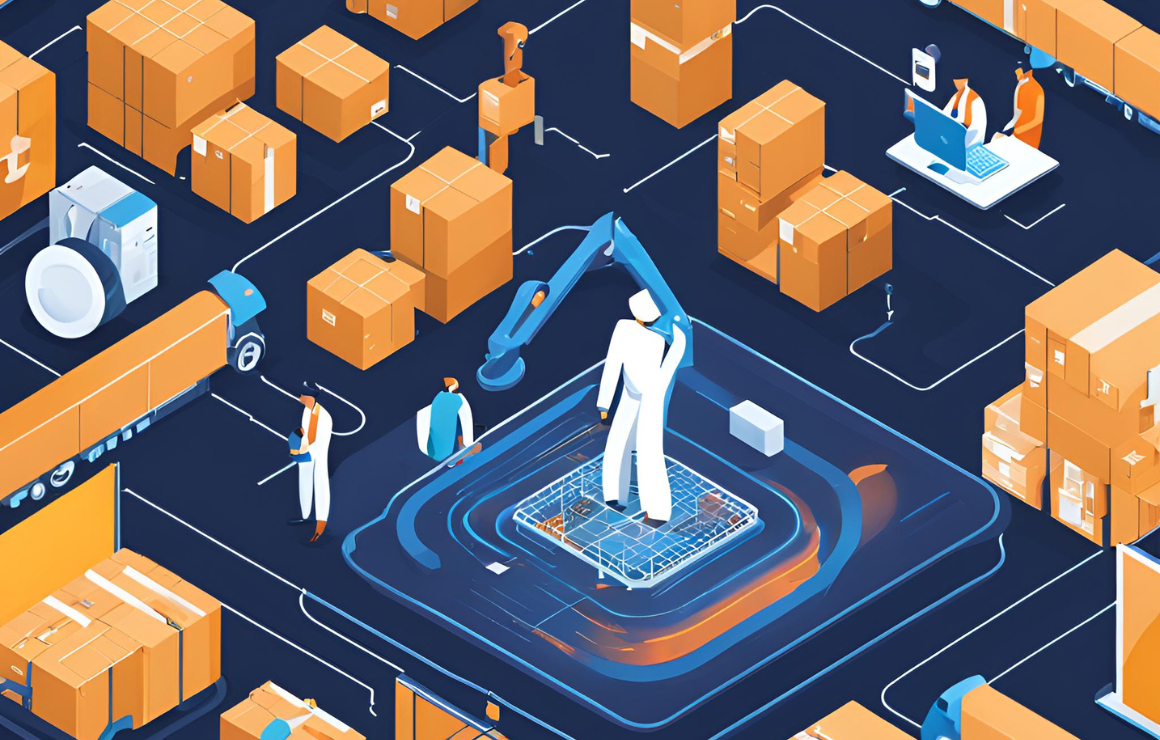No products in the cart.

Here are five ways AI can enhance supply chain management:
Demand Forecasting: AI algorithms analyze historical sales data, market trends, and external factors (like seasonality or economic indicators) to predict future demand more accurately. This helps companies optimize inventory levels and reduce stockouts or overstock situations.
Inventory Optimization: Machine learning models can assess inventory turnover rates and storage costs to determine optimal stock levels. AI can also recommend reorder points and quantities, leading to improved cash flow and reduced holding costs.
Supply Chain Visibility: AI-powered analytics tools provide real-time tracking of shipments and inventory across the supply chain. This visibility helps organizations respond quickly to disruptions, monitor supplier performance, and enhance collaboration.
Route Optimization: AI can analyze various factors such as traffic patterns, weather conditions, and delivery windows to optimize transportation routes. This not only reduces shipping costs but also improves delivery times and customer satisfaction.
Risk Management: AI systems can identify potential risks in the supply chain by analyzing data from various sources, such as market trends and geopolitical events. Predictive analytics can help businesses prepare for disruptions and develop contingency plans, ensuring more resilient operations.
Implementing these AI strategies can lead to increased efficiency, reduced costs, and improved overall performance in supply chain management.
Supplier Selection and Management: AI can analyze supplier performance metrics, financial stability, and compliance history to help businesses select and manage their suppliers more effectively. This leads to better quality products and more reliable partnerships.
Automated Warehousing: AI-driven robotics and automation systems can streamline warehouse operations, including picking, packing, and sorting. These technologies can enhance accuracy, speed, and reduce labor costs.
Predictive Maintenance: AI can monitor equipment and machinery health in real-time, predicting when maintenance is needed before failures occur. This proactive approach minimizes downtime and extends the life of assets.
Customer Service and Support: AI chatbots and virtual assistants can handle routine inquiries and provide real-time updates on order status, shipment tracking, and inventory availability, enhancing customer satisfaction and freeing up human agents for more complex issues.
Sustainability Optimization: AI can help businesses analyze their supply chain processes to identify inefficiencies and areas for improvement. By optimizing routes, reducing waste, and selecting eco-friendly suppliers, companies can enhance their sustainability efforts.
Implementing these AI applications can lead to a more agile, responsive, and efficient supply chain, driving competitive advantage and improving customer experiences.



Add comment